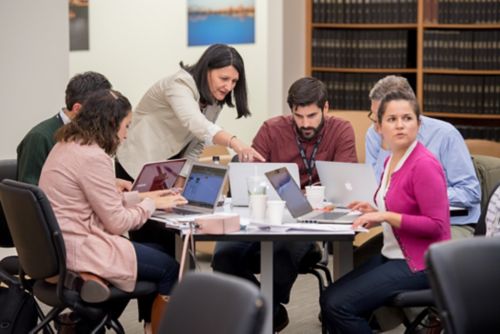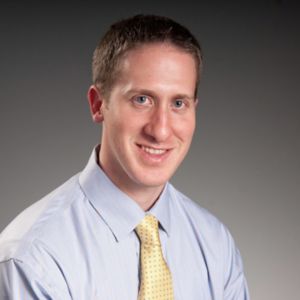St. Jude Family of Websites
Explore our cutting edge research, world-class patient care, career opportunities and more.
St. Jude Children's Research Hospital Home

- Fundraising
St. Jude Family of Websites
Explore our cutting edge research, world-class patient care, career opportunities and more.
St. Jude Children's Research Hospital Home

- Fundraising
Latin American clinicians attend global medicine course

Course director Miguela Caniza, MD (standing), of St. Jude Global Pediatric Medicine and Infectious Diseases, works with Latin American clinicians during an afternoon workshop session as part of the Global Pediatric Medicine–Infectious Diseases Course.
As part of the new St. Jude Global program, St. Jude Children’s Research Hospital recently created a Global Pediatric Medicine–Infectious Diseases course for Latin American clinicians to examine some of the most important questions concerning pediatric cancer.
Hosted by the departments of Global Pediatric Medicine and Infectious Diseases and the St. Jude Graduate School of Biomedical Sciences, the course offered 22 clinicians from 17 Latin American institutions a unique look inside the work being done at St. Jude. Participants also obtained valuable clinical experience to share with their colleagues back home.
"This inaugural course is an important part of the St. Jude Global program, which is focused on training our clinical partners to enhance the quality of care delivered around the globe."
- Course director Miguela Caniza, MD
St. Jude Global Pediatric Medicine and Infectious Diseases
Before coming to St. Jude, participants completed an eight-week, online segment. The sessions included pre-recorded lectures and webinars, pre-test and post-test evaluations, access to St. Jude faculty members, and the creation of research projects. Lessons were divided into four modules: infections in pediatric cancer; quality in infection care; quality in infection prevention; and sustainability, research and dissemination in infection care and prevention. The modules covered 30 various topics with lessons in areas such as respiratory infections, diagnostics in infections, surveillance and grant writing.
“The online work really prepared them. By the time they arrived at St. Jude, they had a pretty good idea of what to expect,” said Miguela Caniza, MD.
The Latin American clinicians consolidated their learning during the two-week residential segment once they arrived. Educational and training activities were taught by St. Jude and guest faculty members. Afternoon team workshops allowed participants to think about how to apply these newly learned concepts at their own institutions. The workshops included tracks in infectious care, antimicrobial stewardship, infection control, quality improvement and research and ethics.
The clinicians developed research questions during the residential portion. They then presented these topics at the end of the course.
“Their research questions were a cross-section of the important topics that are concerning Latin American physicians,” Caniza said.
The course coincided with the 16th annual St. Jude/PIDS Pediatric Infectious Diseases Research Conference, which included presentations from 14 of the course participants. Future courses will also coincide with the conference. This annual event will provide networking and educational opportunities for infectious diseases professionals. The course structure will expand to other specialties in the future.






